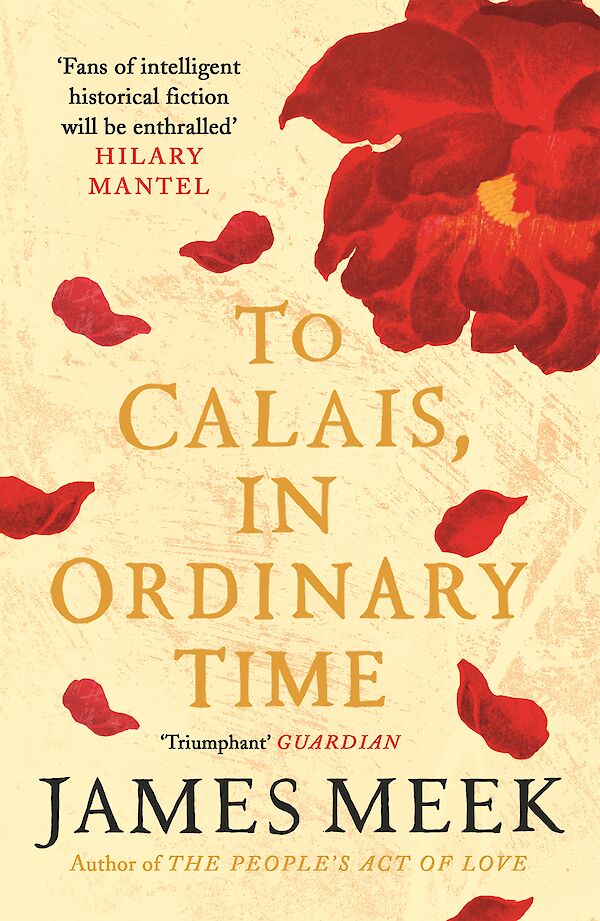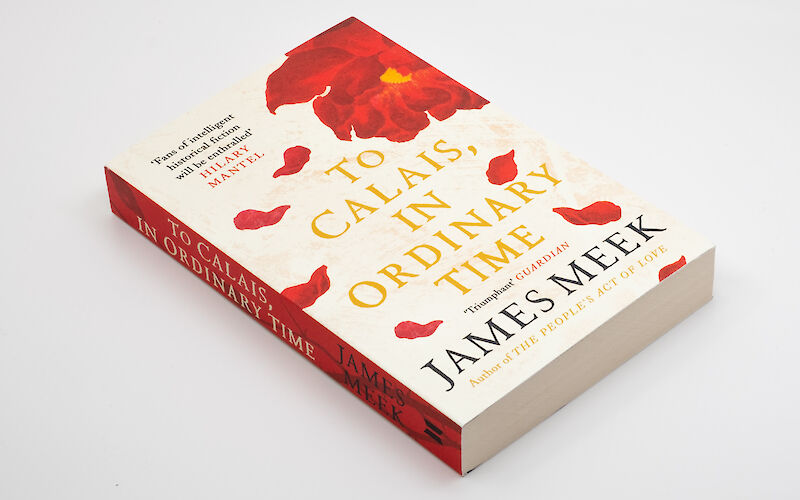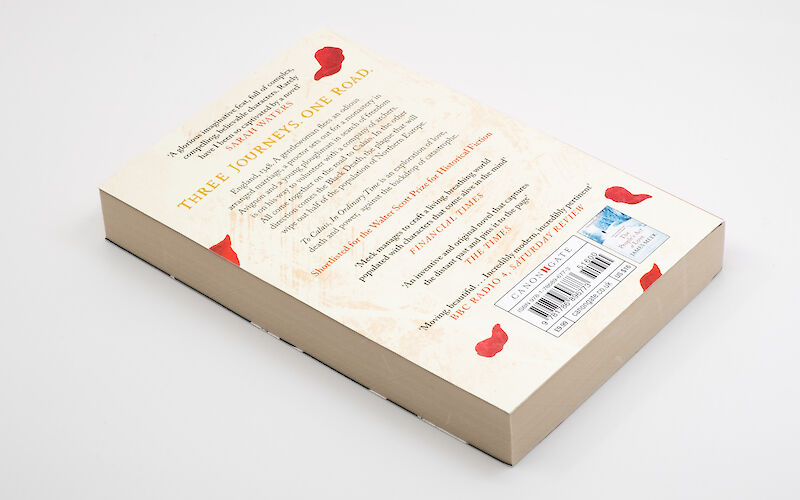To Calais, In Ordinary Time
James Meek
The new novel about home, belonging, love, courage and identity, set in the fourteenth century, from the Booker-longlisted author of The People’s Act of Love
‘Inventive and original’ The Times
‘Fans of intelligent historical fiction will be enthralled’ Hilary Mantel
Shortlisted for the Walter Scott Prize for Historical Fiction
Longlisted for the Orwell Prize for Political Fiction
Three journeys. One road.
England, 1348. A gentlewoman flees an odious arranged marriage, a proctor sets out for a monastery in Avignon and a young ploughman in search of freedom is on his way to volunteer with a company of archers. All come together on the road to Calais. In the other direction comes the Black Death, the plague that will wipe out half of the population of Northern Europe.
To Calais, In Ordinary Time is an exploration of love, death and power, against the backdrop of catastrophe.
“Fans of intelligent historical fiction will be enthralled by a story so original and so fully imagined. Meek shows the era as alien, which it is, and doesn’t falsify it by assimilating it to ours. But his characters are recognisably warm and human”
Hilary Mantel
See more reviews
“An inventive and original novel that captures the distant past and pins it to the page”
the Times, Book Of The Month
“A glorious imaginative feat, full of complex, compelling, believable characters. Rarely have I been so captivated by a novel, so keen to hurry back to it and reimmerse myself in its world”
Sarah Waters
“Meek’s novel about the Black Death of 1348 has acquired an entirely unpredictable topicality … Captivating … Meek captures the mystery, squalor and occasional beauty of its medieval setting perfectly, and the encroaching horror that awaits all its characters gives the fascinating narrative an awful but compelling momentum”
observer
“Meek employs great linguistic invention and remarkable imagination to conjure up a world in which readers rapidly become immersed”
sunday Times, Books Of The Year
James Meek
James Meek is the author of six novels including The People’s Act of Love which was longlisted for the Man Booker Prize and won both the Royal Society of Literature Ondaatje Prize and the Scottish Arts Council Award. It has been published in more than thirty countries. Meek has also written two collections of short stories and two books of non-fiction, Private Island, which won the 2015 Orwell Prize and Dreams of Leaving and Remaining. He is a Contributing Editor to the London Review of Books and writes regularly for the Guardian and New York Times. He lives in London. In 2020, To Calais, In Ordinary Time was shortlisted for the Walter Scott Prize for Historical Fiction and longlisted for the Orwell Prize for Political Fiction.
James Meek, author of To Calais, In Ordinary Time, writes about the intersections of languages with each other, and with power, at the Guardian:
“The transformation tends to be presented in popular history as an absolute, as the triumph of English over French, as if languages were hermetic national systems, as if English were taken prisoner by French with the Norman conquest in 1066, was tyrannised by it for the next 300 years, then burst free and drove the aggressor back across the Channel. As well as describing, in English, the death of French as a living language in England, Trevisa sounds the death knell for living Latin by the then radical act of translating a learned work from Latin into English.
“But neither French nor Latin went away. They seeped into what we call English and made themselves at home, giving the language its fantastical redundancy, creating something half-Germanic, half-Romance. Trilinguality was internalised. Otherwise the Albert Hall would resound to ‘Land of hope and woolder/Mother of the frith,’ and we’d sing ‘God beery our gladman Queen’ and leave the EU not to take back control but to ‘take wield again’. We’re born in English, live, love, wonder, feel and die in English, but we’re conceived, we emerge, exist, touch, desire, doubt, experience, suffer, succeed, fail and perish in French and Latin.”
Guardian






